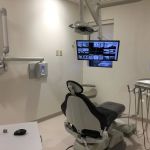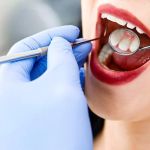Dental Care Tips to Avoid Common Oral Diseases
- 1. Importance of Dental Hygiene
- 2. Preventive Measures for Oral Diseases
- 3. Common Oral Diseases and How to Avoid Them
- 4. Effective Dental Care Products
- 5. Final Thoughts and Call to Action
1. Importance of Dental Hygiene
Oral health plays a crucial role in your overall well-being. Neglecting basic dental care can lead to a variety of oral diseases such as cavities, gum disease, and even more severe health problems. The foundation of a healthy mouth begins with daily brushing and flossing, which help remove plaque—the sticky substance that can cause harmful bacteria buildup. Consistent oral hygiene habits not only keep your teeth white but also protect your gums from infection and irritation.
2. Preventive Measures for Oral Diseases
Preventing oral diseases is much easier and less costly than treating them. Here are some key steps you can take to keep your mouth healthy:
- Brush your teeth at least twice a day: Use fluoride toothpaste and a soft-bristled toothbrush. Brushing effectively removes plaque and food particles.
- Floss daily: Flossing helps to clean the spaces between your teeth where a toothbrush might not reach.
- Visit your dentist regularly: A professional cleaning and routine check-up can help catch any issues early before they become serious.
- Eat a balanced diet: Eating foods rich in vitamins and minerals supports your oral health. Avoid sugary snacks and drinks, as they contribute to tooth decay.
3. Common Oral Diseases and How to Avoid Them
Several oral diseases can occur if preventive care is not followed. Here's an overview of some common conditions and tips on how to avoid them:
3.1 Cavities
Cavities, or dental caries, occur when bacteria in the mouth break down food particles, especially sugars, to produce acids that damage tooth enamel. To avoid cavities, limit sugary food and drink intake, brush twice a day, and use fluoride toothpaste.
3.2 Gum Disease (Gingivitis and Periodontitis)
Gum disease begins with gingivitis, characterized by inflamed gums. If untreated, it can progress to periodontitis, which affects the bone that supports teeth. Good brushing, flossing, and regular dental cleanings are the best defense against gum disease.
3.3 Tooth Sensitivity
Tooth sensitivity is a common problem, especially with age. It can be triggered by hot or cold foods, acidic foods, or even brushing too hard. Use a toothpaste specifically designed for sensitive teeth and avoid acidic foods to manage this issue.
4. Effective Dental Care Products
Using the right dental care products can enhance your oral health and prevent disease. Some products that are particularly effective include:
4.1 Toothpaste with Fluoride
Fluoride toothpaste strengthens tooth enamel and reduces the risk of cavities. Look for toothpaste with added features like whitening agents or sensitivity relief, depending on your needs.
4.2 Antiseptic Mouthwash
Using a mouthwash containing antiseptic agents helps reduce plaque buildup and controls bad breath. It can also fight gum inflammation, providing an extra layer of protection against gum disease.
4.3 Soft-Bristled Toothbrush
A soft-bristled toothbrush is ideal for removing plaque without damaging your gums. Electric toothbrushes can also provide more effective plaque removal compared to manual brushing.
5. Final Thoughts and Call to Action
By following these dental care tips and incorporating good habits into your routine, you can avoid common oral diseases and maintain a healthy, beautiful smile. Don’t wait until it’s too late to take care of your oral health—start now! Regular visits to your dentist and the right products can make a significant difference in your oral health journey.
Want to ensure you're using the best dental care products? Click here to explore a range of high-quality dental care items that can help keep your mouth healthy and fresh.







 Rhode Island Children's Dentistry & Orthodontics4.0 (806 review)
Rhode Island Children's Dentistry & Orthodontics4.0 (806 review) Maple Brook Dental of MN4.0 (532 review)
Maple Brook Dental of MN4.0 (532 review) Dr. Valarie Kreps0.0 (0 review)
Dr. Valarie Kreps0.0 (0 review) Oral Surgery Hawaii4.0 (385 review)
Oral Surgery Hawaii4.0 (385 review) Gilbert Vista Dental4.0 (55 review)
Gilbert Vista Dental4.0 (55 review) Gentle Dental Riverside Tyler Village4.0 (122 review)
Gentle Dental Riverside Tyler Village4.0 (122 review) The Importance of Oral Health Education During Pregnancy for a Healthy Pregnancy
The Importance of Oral Health Education During Pregnancy for a Healthy Pregnancy Best Tips for Brushing Your Teeth Properly for Healthy Gums: Essential Techniques for Oral Health
Best Tips for Brushing Your Teeth Properly for Healthy Gums: Essential Techniques for Oral Health Why Skipping Dental Checkups Can Lead to Bigger Oral Health Problems
Why Skipping Dental Checkups Can Lead to Bigger Oral Health Problems Advantages of Porcelain Dental Restorations
Advantages of Porcelain Dental Restorations How Can Diabetes Cause Tooth and Gum Problems? Preventing and Managing Oral Health Issues
How Can Diabetes Cause Tooth and Gum Problems? Preventing and Managing Oral Health Issues Healthy Habits for Promoting Good Oral Health and Hygiene: Tips for a Healthy Smile
Healthy Habits for Promoting Good Oral Health and Hygiene: Tips for a Healthy Smile